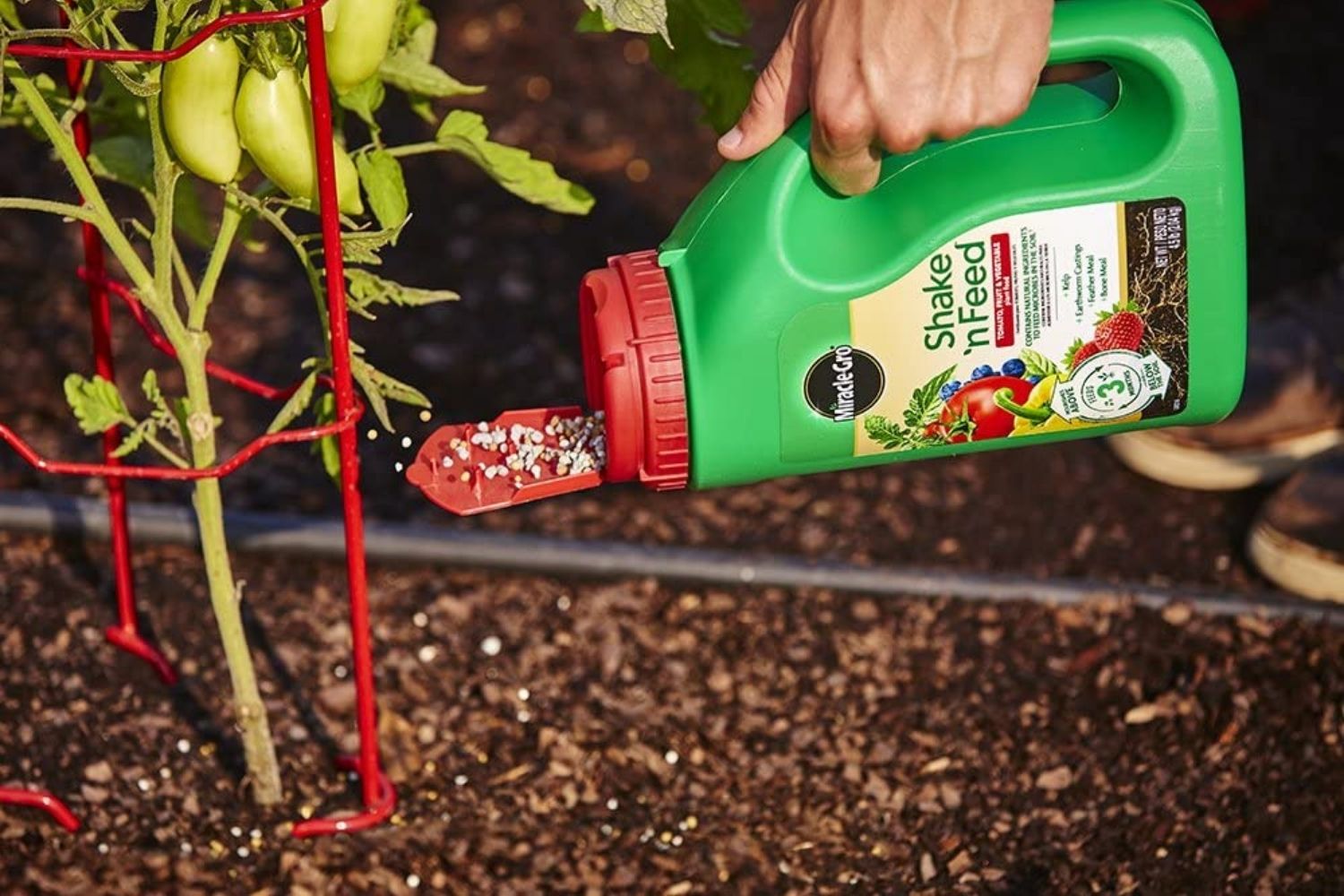Organic Vs. Synthetic Fertilizers: Which Is Best for Nurturing Healthy Pepper Plants?
In the realm of nurturing healthy pepper plants, the selection between natural and artificial plant foods stands as a crucial choice with far-reaching ramifications. While both alternatives purpose to offer crucial nutrients to sustain plant growth, the nuances of their effect on the dirt, plant wellness, and the setting spark an argument that echoes throughout the gardening neighborhood. Recognizing the distinct advantages and possible risks of each fertilizer kind is important for pepper growers looking for to enhance their yields while maintaining an eco-conscious and lasting method.
Benefits of Organic Plant Foods
Organic fertilizers offer an environmentally-friendly and sustainable approach to beneficial pepper plants, supplying vital nutrients without the use of artificial chemicals. These all-natural fertilizers are derived from natural sources such as compost, manure, bone dish, and seaweed, promoting dirt health and wellness and biodiversity. Unlike synthetic fertilizers, natural options launch nutrients slowly, guaranteeing a steady and well balanced supply for pepper plants to thrive.
One significant advantage of organic fertilizers is their capacity to enhance soil structure and water retention. By enhancing dirt health and wellness, organic plant foods promote beneficial microbial task, which helps in nutrient uptake by pepper plants. Additionally, natural plant foods minimize the risk of chemical run-off, shielding water resources from contamination and safeguarding the setting.
Additionally, organic fertilizers add to long-term dirt fertility by advertising the growth of valuable soil microorganisms. These organisms aid break down raw material, releasing nutrients in a kind that is conveniently accessible to pepper plants. best fertilizers for peppers. By cultivating a healthy and balanced dirt community, organic plant foods sustain sustainable pepper farming practices that profit both plants and the setting
Drawbacks of Artificial Plant Foods
Artificial fertilizers, in comparison to their organic counterparts, pose numerous drawbacks when made use of to nurture pepper plants, influencing both plant health and wellness and environmental sustainability. One significant disadvantage of artificial fertilizers is their tendency to seep nutrients from the soil swiftly. This quick leaching can result in nutrient imbalances in the soil, creating plants to struggle with deficiencies or toxicities. In addition, synthetic fertilizers can harm helpful dirt organisms, such as earthworms and helpful germs, interrupting the soil community's balance.
Additionally, the overuse of synthetic fertilizers can contribute to water air pollution. Excess plant foods not taken in by plants can wash away into water bodies, leading to eutrophication, where algae blossoms diminish oxygen degrees in the water, hurting marine life. Artificial plant foods are commonly acquired from non-renewable sources, such as fossil gas, adding to carbon discharges and environmental degradation throughout their production.
Nutrient Absorption Contrast
Efficient nutrient absorption plays an important role in the total health and wellness and growth of pepper plants. When contrasting artificial and organic plant foods in terms of nutrient absorption, natural fertilizers have the benefit of offering an extra balanced and slow-release resource of nutrients (best fertilizers for peppers). Organic fertilizers have a range of macro and trace elements that are not only valuable for the plants but additionally promote healthy dirt microbial task, which aids in nutrient uptake. On the other hand, artificial fertilizers often supply a quick release of nutrients, which can cause leaching and overflow, official site resulting in reduced nutrient absorption rates by the plants.
Additionally, natural plant foods boost soil structure and water retention ability, allowing pepper plants to gain access to nutrients a lot more successfully. This improved soil high quality promotes origin growth, allowing much better nutrient absorption. Artificial plant foods, although originally enhancing plant development as a result of their high nutrient focus, might prevent long-term nutrient absorption by degrading soil health and wellness in time.
Ecological Influence Factors To Consider

On the other hand, artificial plant foods, although typically more immediately readily available and concentrated to plants, can have detrimental impacts on the environment otherwise used appropriately (best fertilizers for peppers). Their production needs high energy inputs, bring about greenhouse gas emissions and adding to environment adjustment. The overflow of excess artificial plant foods can pollute water resources, leading to eutrophication and harming water ecosystems.
Best Fertilizer Practices for Peppers
To achieve this, it is necessary to adhere to ideal plant food techniques customized to the details demands of pepper plants. One critical technique is to perform a soil test before applying any fertilizers.
One more crucial method is to fertilize pepper plants at the ideal time. Normally, peppers gain from getting fertilizer at planting and after that once more when they begin to flower. Over-fertilizing can result in vitamins and mineral inequalities and hurt the plants, so it is important to follow advised application prices.
In addition, selecting a well balanced fertilizer with an NPK proportion that fits pepper plants' needs is essential. Inevitably, integrating natural and synthetic fertilizers judiciously can assist support healthy pepper plants while decreasing environmental effect.
Conclusion

Organic plant foods offer an environmentally-friendly and lasting approach to beneficial pepper plants, supplying crucial nutrients without the usage of artificial chemicals. Unlike synthetic fertilizers, natural choices launch nutrients slowly, ensuring a balanced and consistent supply for pepper plants to grow.
Synthetic plant foods, in comparison to their natural counterparts, present various downsides when used to nourish pepper plants, affecting both plant wellness and ecological sustainability. When comparing organic and synthetic fertilizers in terms of nutrient absorption, organic fertilizers have the advantage of supplying an extra well balanced and slow-release resource of nutrients.Furthermore, organic fertilizers enhance soil structure and water retention capacity, allowing pepper plants to access nutrients much more effectively.